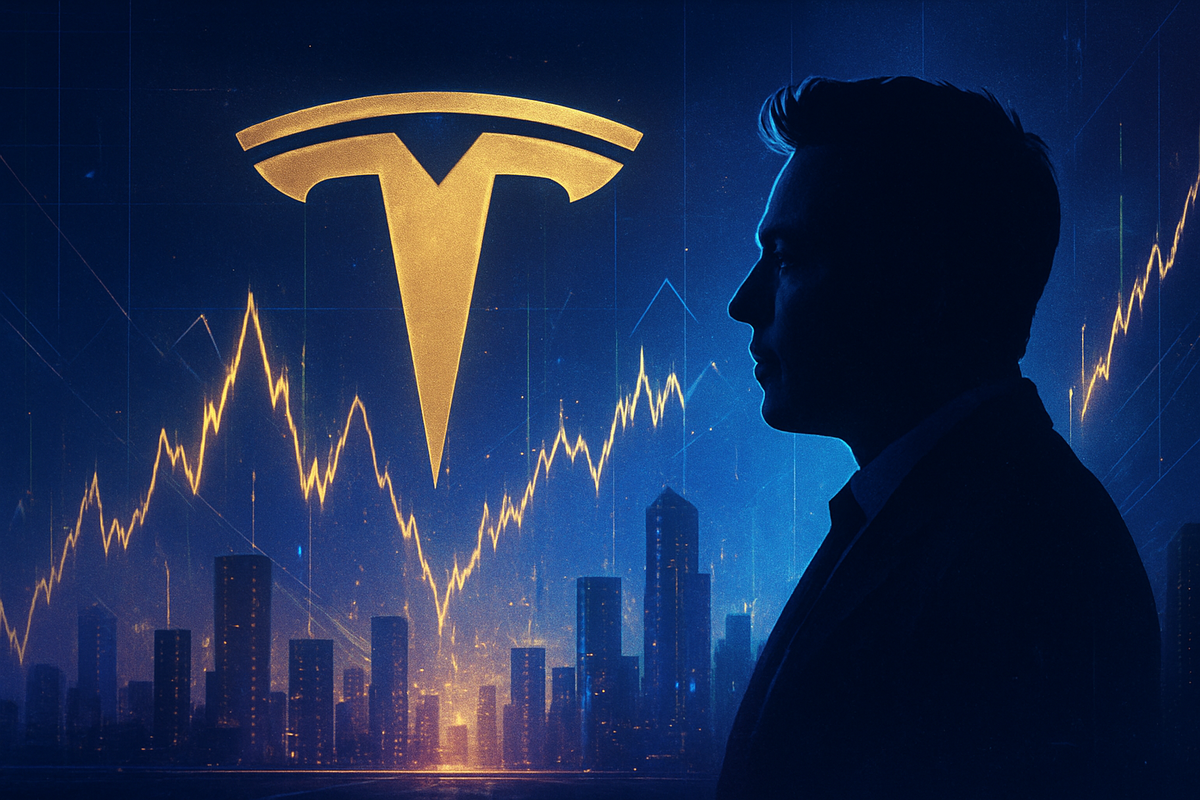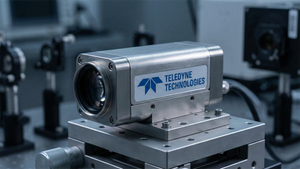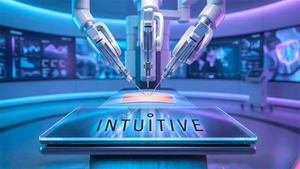Financial News
Tesla's Trillion-Dollar Crossroads: Musk's Pay Vote Rocks Markets

As November 6, 2025, dawns, all eyes in the financial world are fixed on Tesla (NASDAQ: TSLA) as shareholders cast their ballots on a monumental compensation package for CEO Elon Musk. This pivotal vote, which could see Musk awarded up to $1 trillion over the next decade if ambitious targets are met, is not merely a decision on executive pay; it's a referendum on Tesla's future trajectory, Musk's leadership, and the very structure of corporate governance. The outcome is poised to send significant ripples through the market, with immediate implications for Tesla's stock performance and its ambitious expansion into AI and robotics.
The lead-up to this crucial vote has been marked by pronounced volatility in Tesla's shares, reflecting the intense speculation and divided opinions among investors. While the company's board staunchly advocates for the package as essential to retaining Musk's visionary leadership, warning of dire consequences should it be rejected, a vocal contingent of institutional shareholders and proxy advisory firms are urging a 'no' vote, citing concerns over the unprecedented scale of the award, potential shareholder dilution, and corporate governance issues. The decision today will undoubtedly shape investor confidence and dictate the immediate direction of one of the world's most closely watched companies.
The High Stakes of Musk's Mega-Deal: A Detailed Look at the Vote
The current shareholder vote on Elon Musk's compensation package is a re-evaluation of his leadership and Tesla's strategic direction, coming after a Delaware judge voided a similar 2018 package in January 2024. This new proposal, outlined by Tesla's board in early September 2025, is designed to award Musk 423.7 million shares of common stock, distributed in 12 tranches. Each tranche, consisting of 35.3 million shares, is contingent upon Tesla achieving a series of aggressive market capitalization and operational milestones. These include scaling the company's market cap from approximately $1.5 trillion to an staggering $8.5 trillion, delivering 20 million vehicles, deploying 1 million robotaxis, and producing 1 million humanoid robots (Optimus).
A significant departure from previous compensation votes, Musk, who holds roughly 15% of Tesla's shares, is permitted to vote his own shares in this instance. Should the package be approved, his voting control could expand to an estimated 25-29%, a level he has publicly stated is necessary to ensure his strong influence over Tesla's burgeoning AI ventures. The board has vociferously supported the package, asserting its "vital" importance for retaining Musk and incentivizing him to steer Tesla through what they describe as the "AI Revolution." They have warned that a rejection could lead to Musk pursuing other interests or even relinquishing his executive position, potentially triggering a "stock collapse." Musk himself has reportedly threatened to leave if the package is denied.
Initial market reactions have been characterized by significant swings in Tesla's stock. On Wednesday, November 5, 2025, TSLA gained 4%, with an additional 0.32% rise in pre-hours trading on Thursday. Earlier on November 5, shares were trading 1.31% higher at $450 in pre-market. Despite these fluctuations, many analysts maintain a "Hold" consensus rating on the stock, with an average price target suggesting a potential downside of 14.4% from current levels. The day of the vote is expected to bring heightened volatility as the market grapples with the potential outcomes.
Key players and stakeholders involved in this drama include Tesla's board of directors, who have been the primary architects and advocates of the new compensation plan; Elon Musk himself, whose future at the company is intrinsically linked to the vote's outcome; and a diverse group of shareholders. This group ranges from ardent retail investors, who often align with Musk's vision, to large institutional investors like Norway's sovereign wealth fund (Norges Bank Investment Management), which has publicly declared its intention to vote against the package due to concerns over its size, dilution, and corporate governance. Proxy advisory firms such as Glass Lewis and Institutional Shareholder Services (ISS) have also advised against the deal, further polarizing shareholder sentiment.
Market Implications: Winners, Losers, and the Ripple Effect
The outcome of Tesla's (NASDAQ: TSLA) shareholder vote on Elon Musk's compensation package carries profound implications, primarily for Tesla itself, but also for the broader automotive and technology sectors. The immediate "winner" or "loser" will largely be determined by the vote's result and the subsequent market reaction.
If the compensation package is approved, Tesla could see a short-term boost in investor confidence, particularly from those who believe Musk's continued, highly incentivized leadership is indispensable for the company's ambitious growth targets in electric vehicles, AI, and robotics. This scenario might solidify Tesla's position as a leader in these nascent industries, potentially attracting further investment and reinforcing its valuation. The company's stock could experience an upward trend as the market interprets the approval as a strong endorsement of Musk's vision and an assurance of his long-term commitment. Furthermore, Musk's increased voting control (potentially up to 29%) could streamline decision-making, allowing for swifter execution of his strategic initiatives, which proponents argue is crucial for navigating competitive landscapes.
Conversely, a rejection of the package could lead to immediate and significant losses for Tesla. The board has explicitly warned of a "stock collapse" and "significant value" loss if Musk were to "pursue other interests" or "give up his executive position." Such an outcome would plunge the company into uncertainty regarding its leadership and future direction, potentially eroding investor confidence and triggering a sharp decline in its stock price. This scenario would also force Tesla's board to immediately devise a succession plan for Musk, a daunting task given his singular influence on the company's brand and innovation. The perceived instability could make Tesla less attractive to potential investors and top talent, hindering its ability to execute on its long-term goals.
Beyond Tesla, the event could have a ripple effect on competitors and partners. Other electric vehicle manufacturers like Rivian (NASDAQ: RIVN) and Lucid Group (NASDAQ: LCID), as well as established automakers transitioning to EVs such as General Motors (NYSE: GM) and Ford (NYSE: F), might see varying impacts. If Tesla's stock falters due to leadership uncertainty, it could create opportunities for competitors to gain market share or attract investors looking for more stable growth in the EV space. Conversely, if Musk's plan is approved and Tesla continues its aggressive expansion into AI and robotics, it could intensify competitive pressures across multiple industries, including autonomous driving, battery technology, and even humanoid robotics, affecting companies like Google's (NASDAQ: GOOGL) Waymo, Amazon's (NASDAQ: AMZN) robotics division, and other AI developers. The vote also sets a precedent for executive compensation in the tech sector, potentially influencing how other high-growth companies structure their incentive programs for visionary leaders.
Broader Significance: Setting Precedents and Shaping Futures
The Tesla (NASDAQ: TSLA) pay vote for Elon Musk transcends a mere compensation decision; it is a landmark event with far-reaching implications for corporate governance, executive compensation trends, and the future trajectory of high-growth technology companies. This event fits squarely into a broader industry trend where the immense value creation by visionary founders often clashes with traditional corporate governance frameworks designed to protect shareholder interests and ensure board independence. The debate over Musk's package highlights the ongoing tension between incentivizing extraordinary leadership and mitigating risks associated with "key person" dependency and potential unchecked executive power.
The potential ripple effects on competitors and partners are substantial. If the package is approved, reinforcing Musk's control and ambition, it could accelerate Tesla's aggressive expansion into new frontiers like robotaxis and humanoid robots. This would intensify competition for companies already operating in or eyeing these spaces, such as Waymo (owned by Alphabet (NASDAQ: GOOGL)), Cruise (owned by General Motors (NYSE: GM)), and numerous robotics startups. The sheer scale of Tesla's aspirations, backed by a highly incentivized Musk, could force competitors to recalibrate their own strategic investments and timelines. Conversely, if the package is rejected and Musk's commitment to Tesla wavers, it could open avenues for other players to capitalize on any perceived leadership vacuum or strategic uncertainty at Tesla.
From a regulatory and policy perspective, this vote could set a powerful precedent for how executive compensation is structured and scrutinized, particularly for founders of highly innovative companies. The voiding of Musk's 2018 package by a Delaware judge underscored the legal and ethical complexities involved in such large awards. The current vote, with Musk being allowed to vote his own shares, further complicates the narrative around shareholder democracy and independent board oversight. Regulators might take a closer look at mechanisms for ensuring fair and equitable compensation that balances founder incentives with broader shareholder interests, potentially leading to new guidelines or increased judicial scrutiny of similar future proposals.
Historically, comparisons can be drawn to other instances of founder-led companies where the personal vision and drive of an individual were inextricably linked to the company's success, such as Steve Jobs at Apple (NASDAQ: AAPL) or Bill Gates at Microsoft (NASDAQ: MSFT). However, the magnitude of Musk's potential compensation and the explicit warnings from Tesla's board about his potential departure if the package is rejected add a unique dimension to this event. It raises fundamental questions about the extent to which a company's future can, or should, be tied to a single individual, and how to appropriately value and incentivize such indispensable leadership without compromising corporate governance principles. This vote will undoubtedly serve as a case study for future discussions on executive pay and founder influence in the innovation economy.
The Road Ahead: Navigating Tesla's Future
The immediate aftermath of the shareholder vote on Elon Musk's compensation package will set the stage for Tesla's (NASDAQ: TSLA) short-term and long-term trajectory. In the short term, if the package is approved, the market will likely interpret it as a reaffirmation of Musk's leadership and a green light for his ambitious plans. This could lead to a period of renewed investor confidence, potentially stabilizing or even boosting Tesla's stock as the company embarks on aggressive targets in AI, robotics, and expanded vehicle production. The focus will then shift to Tesla's execution on these grand visions, with investors closely monitoring progress on robotaxi deployment, Optimus humanoid robot development, and vehicle delivery milestones.
Conversely, a rejection of the package would usher in a period of significant uncertainty and potential strategic pivots. The immediate challenge for Tesla's board would be to mitigate the risk of Musk's potential departure, which they have warned could lead to a "stock collapse." This scenario would necessitate a swift and decisive plan for leadership succession and a re-evaluation of the company's strategic priorities without Musk at the helm. Such a development could create market opportunities for competitors in the EV and AI sectors, as investors seek more stable alternatives. Tesla might need to adapt its strategy, potentially focusing more on its core EV business or exploring partnerships to fill any leadership void.
In the long term, the outcome will fundamentally shape Tesla's corporate culture and strategic direction. If Musk's expanded influence is cemented, it reinforces a founder-driven model where audacious goals and rapid innovation are paramount. This could enable Tesla to continue pushing boundaries, but also raise ongoing questions about governance and accountability. Market opportunities could emerge in new sectors where Tesla, under Musk's guidance, establishes dominance, such as the mass deployment of autonomous vehicles or humanoid robotics for various applications. Challenges would include maintaining this breakneck pace of innovation, managing regulatory scrutiny in new markets, and fending off increasingly sophisticated competition.
Should Musk's influence diminish, either through a rejected pay package or a future departure, Tesla might evolve into a more conventional corporate structure. This could lead to a more diversified leadership team, potentially bringing a different strategic focus and a more measured approach to growth. The market would then assess Tesla's ability to innovate and compete without its iconic leader, looking for signs of sustained engineering excellence and effective management. Potential scenarios range from a continued, albeit more traditional, growth story to a period of strategic re-alignment and potential market share erosion if the company struggles to adapt to a post-Musk era. Investors should closely watch for any announcements regarding executive team changes, revised strategic roadmaps, and the company's ability to maintain its technological edge in the coming months.
The Trillion-Dollar Verdict: A Defining Moment for Tesla
The shareholder vote on Elon Musk's compensation package represents a defining moment in Tesla's (NASDAQ: TSLA) history, with implications that extend far beyond a single executive's pay. The core takeaway from this event is the profound tension between incentivizing a visionary leader whose influence is undeniably linked to a company's success, and upholding robust corporate governance principles that protect all shareholders. The outcome, whether approval or rejection, will set a powerful precedent for how public companies navigate the unique challenges and opportunities presented by highly influential founders in the modern innovation economy.
Moving forward, the market's assessment of Tesla will be heavily influenced by how the company responds to the vote's verdict. If approved, the focus will shift to Tesla's ability to execute on the ambitious targets tied to Musk's pay, particularly in the burgeoning fields of AI and robotics. Investors will scrutinize every milestone related to robotaxis, humanoid robots, and vehicle deliveries, looking for tangible progress that justifies the monumental compensation. The long-term impact will hinge on whether this emboldened leadership translates into sustained innovation and market dominance, or if the governance concerns raised by critics eventually manifest as operational or financial setbacks.
If the package is rejected, the market will immediately assess Tesla's contingency plans for leadership and strategic direction. The company's ability to demonstrate stability, articulate a clear path forward without the full incentivization of Musk, and potentially identify a strong succession plan will be crucial for maintaining investor confidence. In this scenario, the market will be keenly watching for any signs of internal discord, strategic shifts, or a deceleration in the pace of innovation.
Ultimately, this event underscores the evolving landscape of corporate leadership in an era defined by rapid technological change. Investors in Tesla and the broader market should watch for several key indicators in the coming months: the company's quarterly earnings reports for progress on operational targets, any further statements from Elon Musk regarding his commitment and vision, and the ongoing dialogue around corporate governance standards for founder-led entities. The "Trillion-Dollar Question" is not just about Musk's pay; it's about the future model of value creation and leadership in the 21st century.
This content is intended for informational purposes only and is not financial advice
More News
View More




Recent Quotes
View MoreQuotes delayed at least 20 minutes.
By accessing this page, you agree to the Privacy Policy and Terms Of Service.



